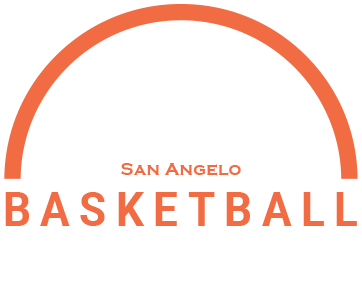Are you a Parent?
As a parent or guardian of a youth trying to play basketball what is your role in the child’s development:
- Support and love the child
- Give them a chance to learn the game and practice properly
- Understand every coach is different and should be treated with respect
- Understand every referee is different and should be treated with respect
- Know that most of the great players play and practice all the time because they enjoy it
- Understand there is more to the child’s development than simply going to organized team practices
You also must have realistic expectations of the entire process. If, as a parent/guardian, you only allow your child to practice once or twice a week and they can’t enhance his or her skills at home, they will generally not be as good as children that can work more often. I am not suggesting basketball practice time needs to be the majority of the child’s life, but with the proper work ethic and understanding of how to practice 30 mins to an hour almost daily can make a huge difference. The key is learning what each player needs to practice, and as his or her skills develop how that changes.
For example, during a basketball season if a player is having trouble making shots, there are drills both in and out of a gym that can be practiced to help make minor adjustments to the shot. Once the season is over it could be possible that a complete change in shooting form is required to maximize the players competence. Knowing the difference between these (for all aspects of the game) and the steps to take is what I would like to help you and your child improve upon.
If you are new to basketball and would also like to better understand the game at various levels, I would be more than happy to also help you understand. There are significant differences between every level, even between college and NBA players/teams.
Finally, if you have questions for your child’s coach or a referee, please address those questions in a polite respectful manner. I suggest you try to set an appointment to address your questions, and not get confrontational after or during an emotional game. Remember basketball is a game that has an emotional tie for some people so there are good and bad times to question things.
Are you a coach?
There are many different types of basketball coaches these days:
- Long time junior high or high school coach.
- Young college grad starting off in the coaching industry.
- Experienced basketball player that loves the game and is trying to help neighborhood kids.
- A parent or friend of someone that doesn’t have a coach, and needs someone to volunteer so the kids can play.
- Another sport coach that is being given a new job duty.
No matter where you fit above, there are numerous sources on the internet for you to gain knowledge about the game. There are a lot of quality videos, articles, and books that can help you learn.
That being said, there is also a lot of bad information, and just as importantly the quality sources taken out of context with the totality of building a team may not be right for your situation.
Building a team can be easy and fun, with the right mentality and a PLAN. If you are coaching a varsity team your plan needs to be different than a 3rd grade YMCA or Rec team coach. Obviously, your players are at different points in their basketball development, and your PLAN needs to reflect these differences.
Is your focus on:
Teaching your team in practice to be the best they can be running your philosophies?
Making adjustments within the game towards how your opponent is playing?
Making your players the best individual players they can be?
Watching film and learning from the successes and failures from previous games?
Changing your philosophies to match the skills of your players?
Off season player development?
Something else?
No matter where you are now in the development and growth of your coaching experience let me help you develop and or improve on the plan you currently have. This amazing game is constantly changing, but there are a lot of basics that can be taught to ensure your team is ready for their season. There are also minor adjustments/thoughts in your current philosophy that can make a tremendous difference in your players/team success. Learning to work smarter, not necessarily longer is the key.
